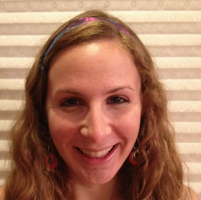Hear and Be Heard: Learning With and Through Music as a Dialogical Space for Co-Creating Youth Led Conflict Transformation
DOI:
https://doi.org/10.15845/voices.v17i1.857关键词:
youth, dialogical, musical spaces, conflict transformation, socialization, equality摘要
Israeli, Palestinian, and Palestinian-Israeli youth who experience the recreation of protracted conflict in a multiplicity of ways through direct and non-direct violence, in addition to intergroup systemic injustice, must learn to witness, name, challenge, and disrupt these extremely powerful societal forces as a means to transform conflict. Transferable learning, in the form of learning for and about peacebuilding, coexistence, coresistence, solidarity, human rights, nonviolent communication, and resilience, when interwoven into the process of learning music with a critical pedagogy (Freire, 1970), can create an opening of spaces (Allsup, 2013) and perspectives in which youth can build equal social relationships.
It is my belief through my own engagement with theory and practice while working with youth in locations of systemic injustice and locations of protracted conflict in Israel/Palestine with the music education-conflict transformation nonprofit Heartbeat, that musical spaces can have profound and enduring effects on youth and their communities. Within these musical spaces in which ensembles learn, rehearse, and co-write lyrics and melodies in dialogue and as reflections of their daily experiences, youth have the potential to author and re-author themselves through a creative process of musicking (Small, 1995). This location of possibilities (hooks, 1994), where youth can question and challenge their socialization, serves as an opening “to read their world” (Greene, 1995), develop critical thinking, and to reimagine their role in society as active participants and stakeholders in transforming conflict. This article also includes excerpts weaved throughout from the youth voices of Heartbeat in the form of their lyrics and actual stories of practice. Ultimately, how can Israeli and Palestinian youth musicians author and re-author themselves through being heard and co-creating musically within these shared dialogical musical spaces, enabling the generating and regenerating of equal social relationships?

Downloads
已出版
How to Cite
期
栏目
License
Articles published prior to 2019 are subject to the following license, see: https://voices.no/index.php/voices/copyright

